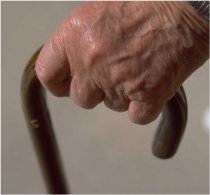 Hundreds of thousands of American men are creating a massive, uncontrolled and possibly life-threatening experiment by taking so called "anti-aging" testosterone replacement therapies, according to "Masculine Vitality: Pros and Cons of Testosterone in Treating the Andropause," a new report by the International Longevity Center-USA (ILC-USA).
Hundreds of thousands of American men are creating a massive, uncontrolled and possibly life-threatening experiment by taking so called "anti-aging" testosterone replacement therapies, according to "Masculine Vitality: Pros and Cons of Testosterone in Treating the Andropause," a new report by the International Longevity Center-USA (ILC-USA). "When a large number of people take unproven testosterone replacement treatments it creates a mass, nation-wide unregulated laboratory that will have unpredictable results for those involved," Robert N. Butler, president and CEO of the ILC-USA, said. "Women have known about and been using hormone replacement for decades now, yet the dangerous side effects of this treatment, including an increased possibility of developing breast cancer and suffering a heart attack or stroke, have only recently been positively linked to hormone replacement.
As a result, millions of women are reassessing the use of estrogen."
The purpose of the workshop on which the new report is based was to determine what is known about testosterone and the effects of testosterone replacement therapy, propose a research agenda for future work and identify other steps that might be taken in the realm of public information and policy.
The report advocates developing a Men's Health Initiative by the National Institutes of Health (NIH) to examine the affects of male hormone replacement therapy.
Concern regarding the possibility of promoting prostate cancer has made the NIH reluctant to sponsor a large clinical trial for testing testosterone replacement. The report suggests, however, the importance of a clinical trial, "since thousands of men daily appear to be willing to take their chances on unproven hormone replacement, surely they should be allowed to give informed consent to volunteer in a randomized, double-blind clinical trial that would answer questions about the pros and cons of replacement therapy on bone, muscle, sexuality and central nervous function, as well as long term safety."
Specifically, the report recommends the test originally proposed by the Department of Veterans Affairs and the National Institute on Aging - a six year study that would involve 6,000 men and cost approximately $100 million. According to the report, "The price is high, but not as high, in the long run, as inaction."
Testosterone replacement therapy sales reached $400 million in 2002 and demand is certain to grow with aging baby boomers who try to fight aging.
The report also questions the real benefits offered by testosterone replacement. It reviews the known biological aspects of testosterone in men and how this hormone decreases with age. The report points out that the extent to which this drop contributes to loss of bone, lean body mass, gain in body fat and frailty is not known. In other words, there is little proof of Andropause - what some call "male menopause." While women's estrogen levels begin to sharply decline in their 40s, men show a large range of normal testosterone levels throughout life.
"Since the possible benefits are unproven and the negative possible side affects of prostate cancer and coronary issues are unknown, men should seriously question the risk/benefit ratio of this type of treatment," Dr. Butler said.
The report, Masculine Vitality: Pros and Cons of Testosterone in Treating the Andropause is available free of charge from the ILC-USA web site at http://www.ilcusa.org/pub/books.htm.

